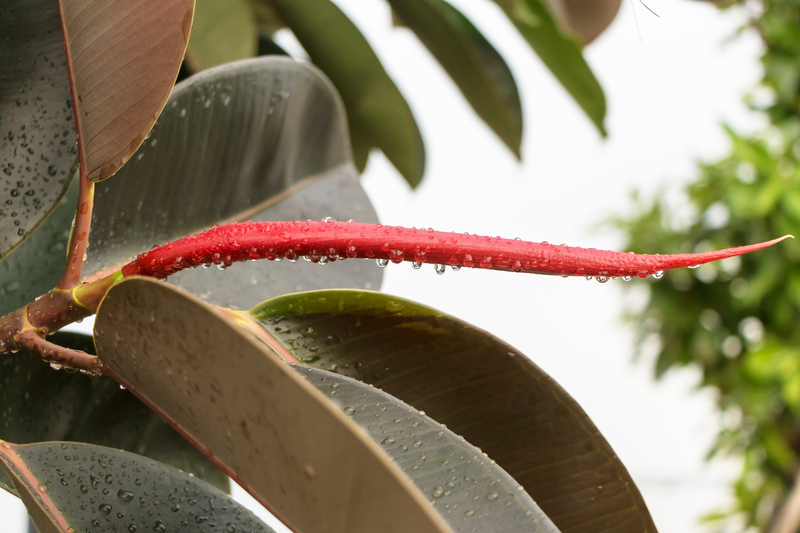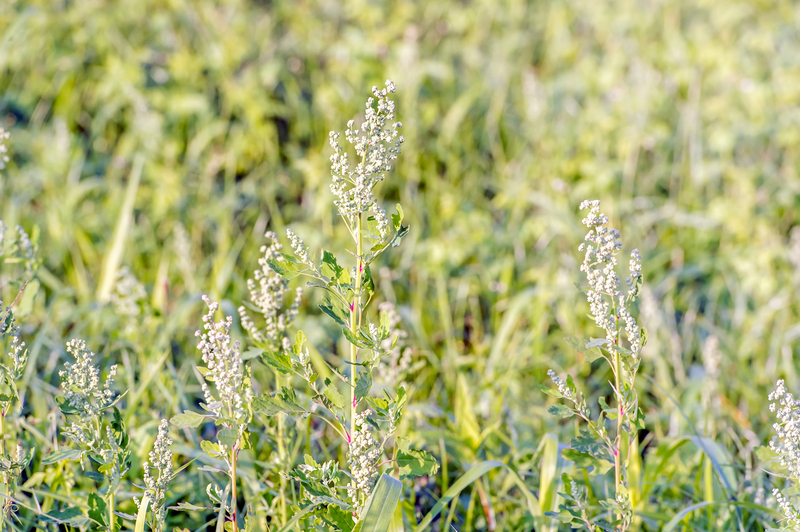Organic Waste Becomes Rich Fertilizer
Posted on 13/08/2025
Organic Waste Becomes Rich Fertilizer: Transforming Trash Into Treasure
In today's eco-conscious world, converting organic waste into rich fertilizer is not just a sustainable practice--it's a revolution in waste management and agriculture. Every day, households and industries generate tons of organic waste, most of which ends up in landfills, producing harmful greenhouse gases. However, when handled the right way, these discarded materials offer an incredible opportunity for soil enrichment, organic farming, and even climate change mitigation. In this comprehensive article, we explore how organic waste is turned into high-quality fertilizer, the processes involved, its benefits, and practical ways you can join this green movement.

Understanding Organic Waste: Turning Garbage Into Gold
Before diving into the transformation process, it's crucial to understand what organic waste includes. Essentially, organic waste comprises any biodegradable material derived from plants or animals. Common examples include:
- Food scraps (vegetable peels, fruit rinds, eggshells, coffee grounds, etc.)
- Yard waste (leaves, grass clippings, branches, and flowers)
- Paper products (uncoated paper towels, napkins, cardboard)
- Animal manure (from farms or backyard poultry)
- Agricultural residues (straw, corn stalks, husks)
These materials, when properly managed, can be transformed into a nutrient-rich product that not only feeds plants but also improves soil health and fertility.
The Problem With Organic Waste in Landfills
When organic waste is discarded in landfills, it undergoes anaerobic (oxygen-deprived) decomposition, producing methane--a greenhouse gas far more potent than carbon dioxide. This not only contributes to global warming but also represents a loss of valuable nutrients that could be cycled back into the earth. Diverting organic matter from landfills and turning it into fertilizer closes the loop of sustainable resource usage.
The Science Behind Converting Organic Waste to Fertilizer
The process of converting organic waste into rich fertilizer involves biologically breaking down the waste material into simpler compounds. This can be achieved through two main methods:
- Composting (Aerobic Decomposition)
- Vermicomposting (Using Worms)
- Anaerobic Digestion (Biogas Production)
Traditional Composting: Nature's Way of Recycling
Composting is a natural process where microorganisms such as bacteria and fungi break down organic matter in the presence of oxygen. This method is accessible to households, communities, and large-scale operations alike.
Here's how the process works:
- Collection: Gather organic materials like food scraps, yard waste, and paper products.
- Shredding and Mixing: To speed up decomposition, chop or shred larger pieces and mix different types of organic waste for a balanced carbon-to-nitrogen ratio.
- Piling: Create a compost pile or use a bin, ensuring good aeration by occasionally turning the pile.
- Decomposition: Microbes break down the material over weeks or months, generating heat and breaking down pathogens.
- Maturation: The result is dark, crumbly, earthy-smelling compost--an organic fertilizer teeming with beneficial microbes and nutrients.
Vermicomposting: Using Worms to Create Super Fertilizer
Vermicomposting is a biological process where specially selected earthworms (usually Eisenia fetida, commonly known as red wigglers) break down organic waste into a much finer, nutrient-rich product.
Key benefits of vermicompost include:
- Enriched with enzymes and beneficial microbes
- Contains plant growth hormones
- Improves soil structure and water retention
- Produced faster than traditional compost
The end product, known as worm castings, is one of the richest natural fertilizers and a favorite among organic gardeners.
Anaerobic Digestion: Producing Biogas and Fertilizer
Anaerobic digestion involves the breakdown of organic materials by microbes in the absence of oxygen, typically in a sealed tank or digester. This process produces:
- Biogas (a renewable energy source)
- Digestate (a nutrient-rich slurry that can be used as an organic fertilizer)
Anaerobic digestion is commonly used in agricultural and municipal facilities to handle large volumes of organic waste, turning potential pollutants into both clean energy and soil amendments.
Benefits of Using Organic Waste-Based Fertilizer
Transforming organic waste into fertilizer goes far beyond reducing landfill pressure. This practice:
- Enriches soil with essential nutrients (N, P, K, micronutrients)
- Improves soil structure, increasing water retention and aeration
- Boosts crop yields without synthetic chemicals
- Supports beneficial soil microorganisms, leading to healthier ecosystems
- Reduces reliance on chemical fertilizers that can degrade soil and pollute water bodies
- Cuts greenhouse gas emissions by diverting waste from landfills
- Encourages sustainable agriculture and circular economy principles
Environmental Impact: Fighting Climate Change
By transforming organic waste into natural fertilizer, we're capturing carbon and other nutrients, preventing their release into the atmosphere. This closed-loop system is fundamental for sustainable farming and urban living, where environmental footprints must be minimized.
Soil Health and Agricultural Productivity
Rich fertilizer made from organic waste enhances soil fertility and microbial biodiversity, helping plants resist diseases and thrive in challenging conditions. Over time, regular application rebuilds degraded soils, leading to more productive and resilient agricultural systems.
Step-By-Step: How You Can Make Organic Fertilizer From Waste at Home
Anyone can start converting food scraps and yard trimmings into valuable fertilizer. Here's a simple guide to get you started:
- Choose Your Method: Decide between traditional composting or vermicomposting, depending on your space and waste volume.
- Gather Supplies: For composting, you'll need a bin or pile, a pitchfork, and ideally a thermometer. For vermicomposting, you need a worm bin and red worms.
- Balance Materials: Mix brown materials (like dry leaves, cardboard, and straw--rich in carbon) with green ones (kitchen scraps, fresh grass, manure--rich in nitrogen) for optimal decomposition.
- Maintain Moisture and Aeration: Keep the pile moist (like a wrung-out sponge) and turn it every week or two for oxygen.
- Let It Cure: Allow your compost to mature until it's dark, crumbly, and smells like earth. With vermicomposting, harvest the worm castings every few months.
- Apply to Soil: Use this homemade organic fertilizer in your garden, potted plants, or even donate to a local farm or community garden.
What NOT to Compost
- Meat and dairy products (can attract pests and create odors)
- Oily foods
- Glossy or colored paper
- Pet waste (due to potential pathogens)
- Synthetic materials (plastics, treated wood)
Industrial Scale: How Cities and Farms Turn Waste Into Green Gold
Increasingly, municipalities and agribusinesses are investing in industrial composting and anaerobic digestion facilities to manage municipal solid waste and agricultural residues. These operations process thousands of tons of organic material, creating commercial-grade fertilizers and mulches that are sold to farmers and landscapers.
Notable examples include:
- City-wide green bin programs for food and yard waste collection
- On-farm composting systems using crop residues and manure
- Biogas plants producing both energy and digestate fertilizer
These large-scale initiatives can have a significant environmental and economic impact by reducing landfill use, creating jobs, and supporting local agriculture.
Innovative Technologies for Converting Organic Waste
- In-vessel composters: Accelerate decomposition in a controlled environment
- Aerated static pile systems: Reduce labor and speed up processing
- Multi-stage digesters: Allow recovery of both biogas and high-quality fertilizer
- Biochar production: Converts organic wastes into soil-enhancing charcoal
Applications: Where Is Organic Waste-Derived Fertilizer Used?
Fertilizer produced from organic waste is highly versatile and sees use in many contexts:
- Organic and regenerative agriculture
- Community gardens and urban agriculture
- Landscaping and lawn care
- Erosion control and land restoration
- Commercial horticulture and nurseries
As the demand for sustainable products grows, organic waste-based fertilizers are carving out a vital place in modern agriculture and landscaping industries.
Challenges and Considerations
While the transformation of organic waste into fertilizer has enormous potential, there are challenges to consider:
- Contamination with plastics or chemicals can ruin compost quality
- Odor and pest issues if not managed properly
- Investment in infrastructure for large-scale operations
- Education required for public participation and successful separation of waste streams
With ongoing innovation and public programs, these obstacles are being addressed--and the adoption of organic waste recycling continues to grow worldwide.

Your Role in the Revolution: Start Today!
Whether you live in a city apartment or manage a rural property, you can make a difference by transforming organic waste into rich fertilizer. By adopting composting at home, supporting green waste programs, or advocating for local composting initiatives, you become part of a sustainable solution that nourishes both your plants and the planet.
- Start a compost bin or worm farm at home
- Participate in community composting initiatives
- Educate friends and neighbors about the benefits of turning organic waste into fertilizer
- Support companies and products made with recycled organic matter
Conclusion: From Kitchen Scraps to Fertile Fields
Organic waste becomes rich fertilizer through the application of science, nature, and human initiative. This transformative process is key to building a sustainable, regenerative future--one where nothing is wasted, and everything is valued. By embracing these practices, we not only reduce our environmental footprint but also cultivate healthier gardens, farms, and communities.
Join the movement--turn your organic waste into green gold and be a steward of a healthier world!
Latest Posts
Gardening Must-Haves for the Passionate Planter
Discover Zen Garden Designs to Cultivate Peace and Tranquility Outdoors
Crafting a Playful Oasis for Kids to Discover Nature

